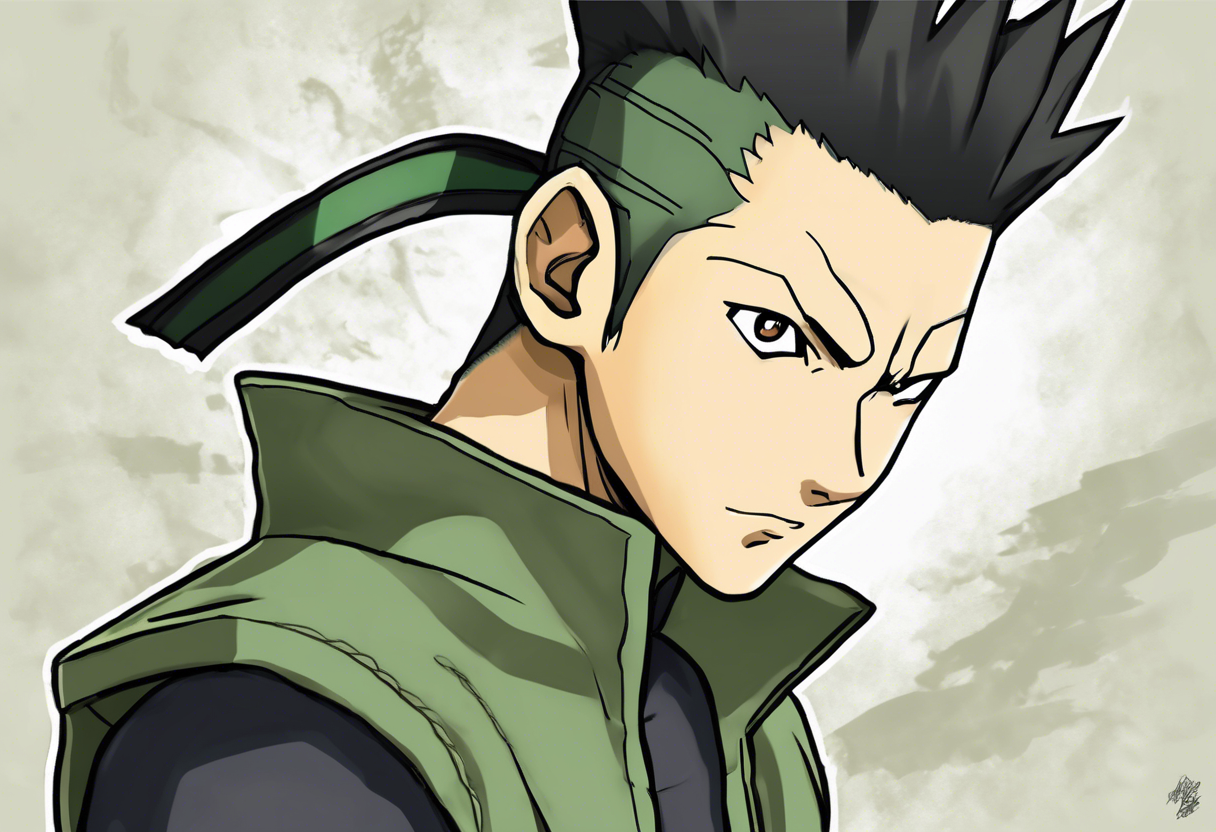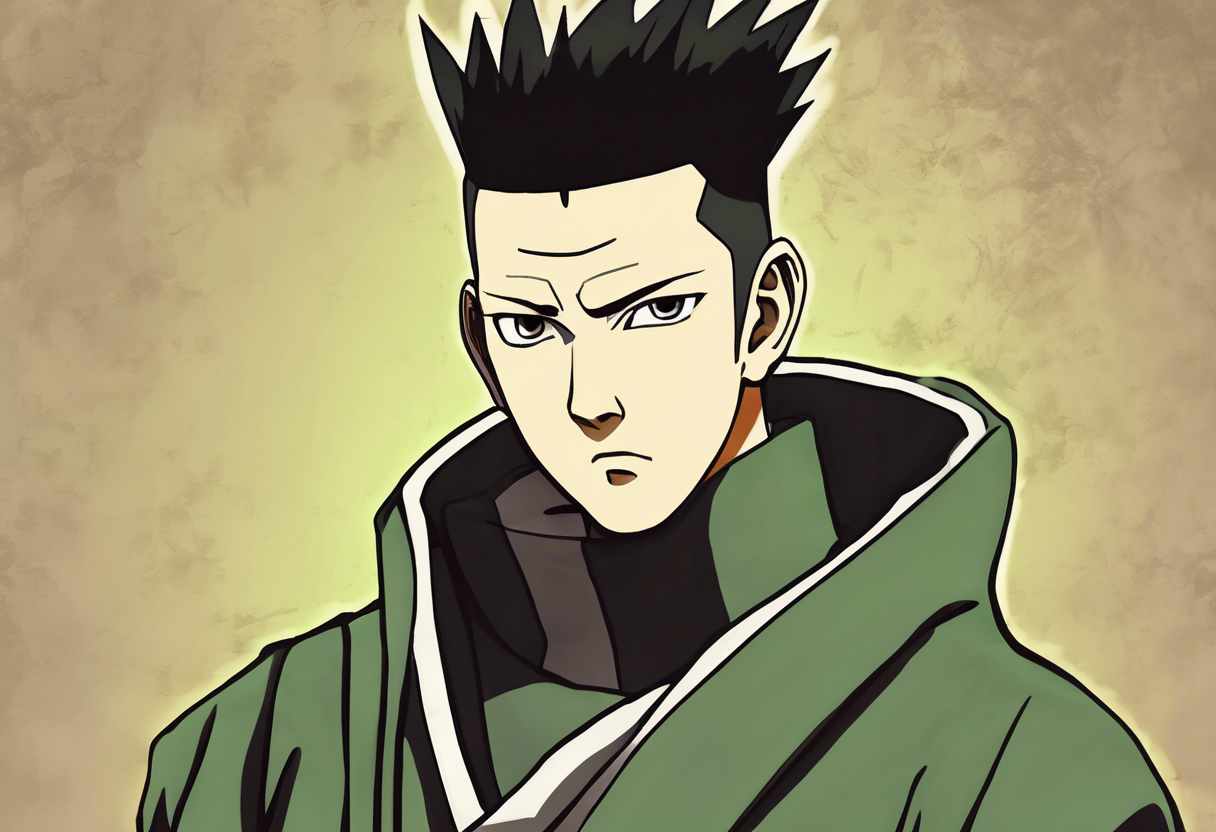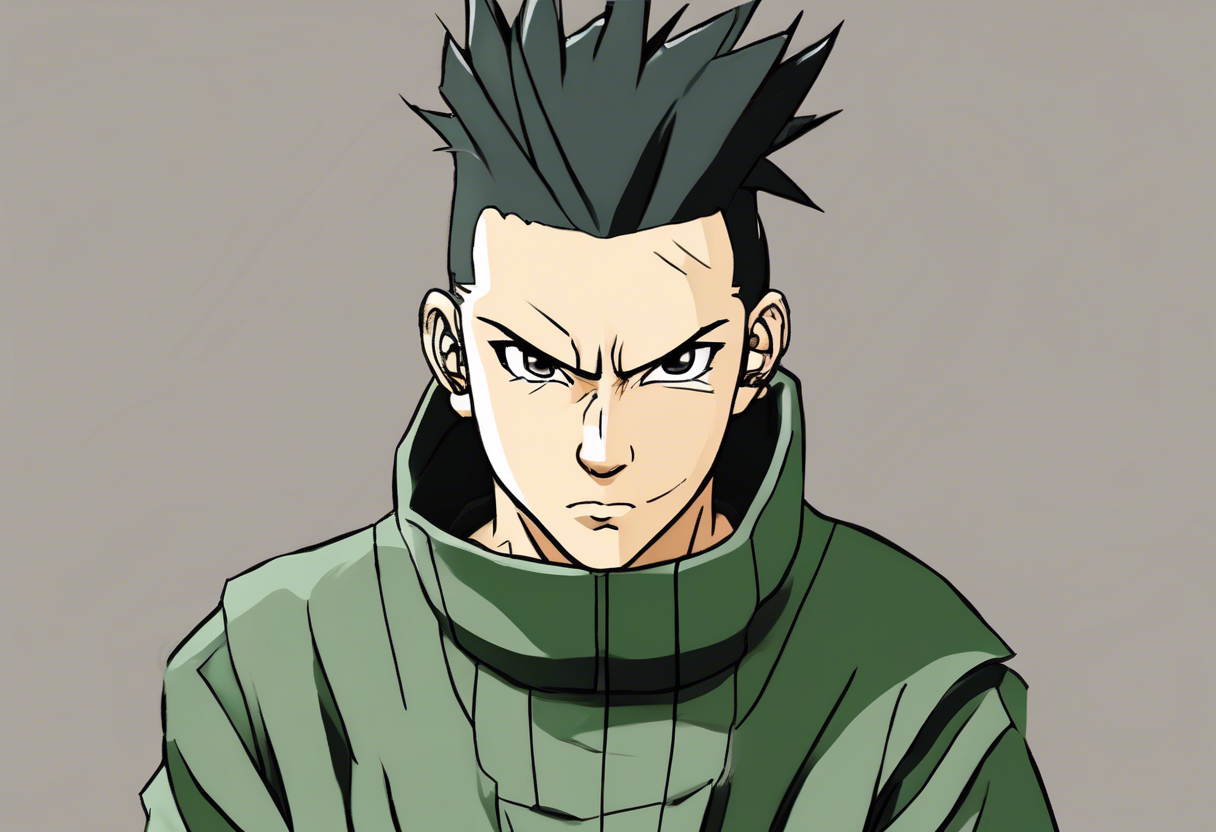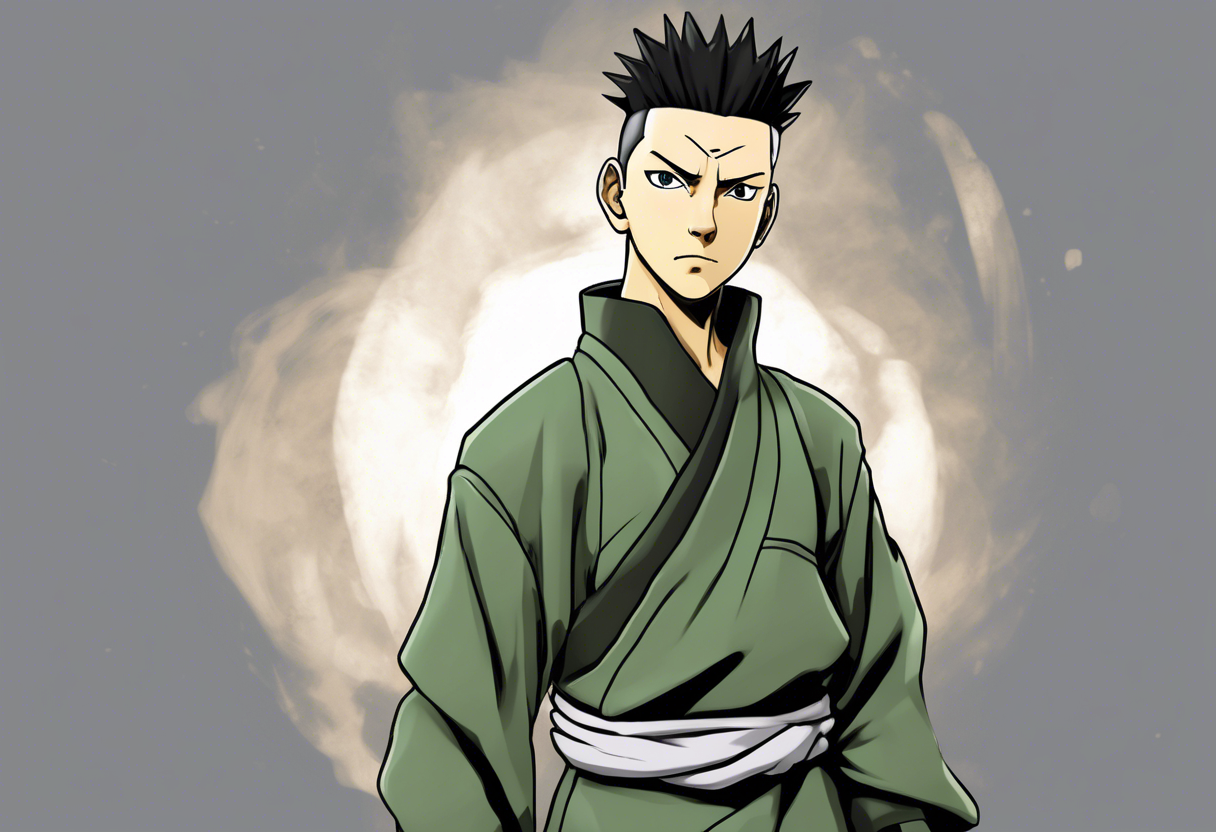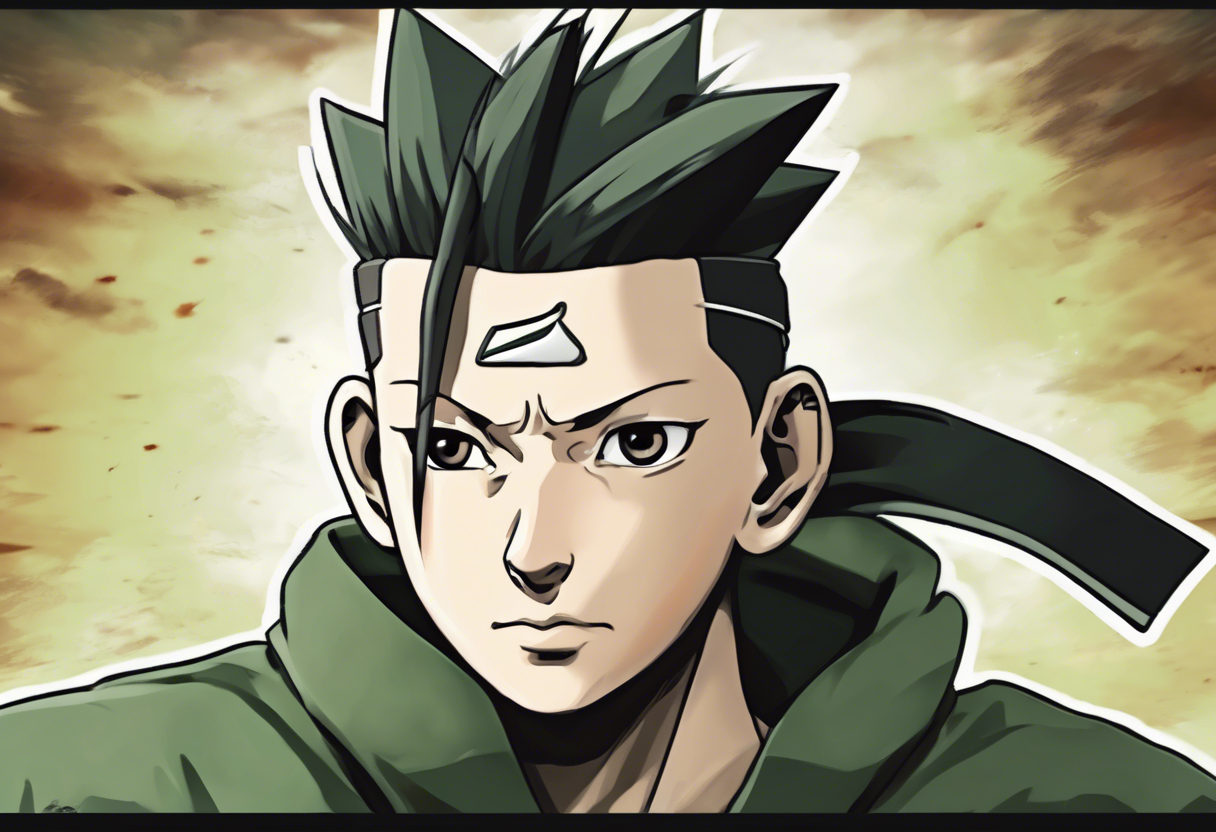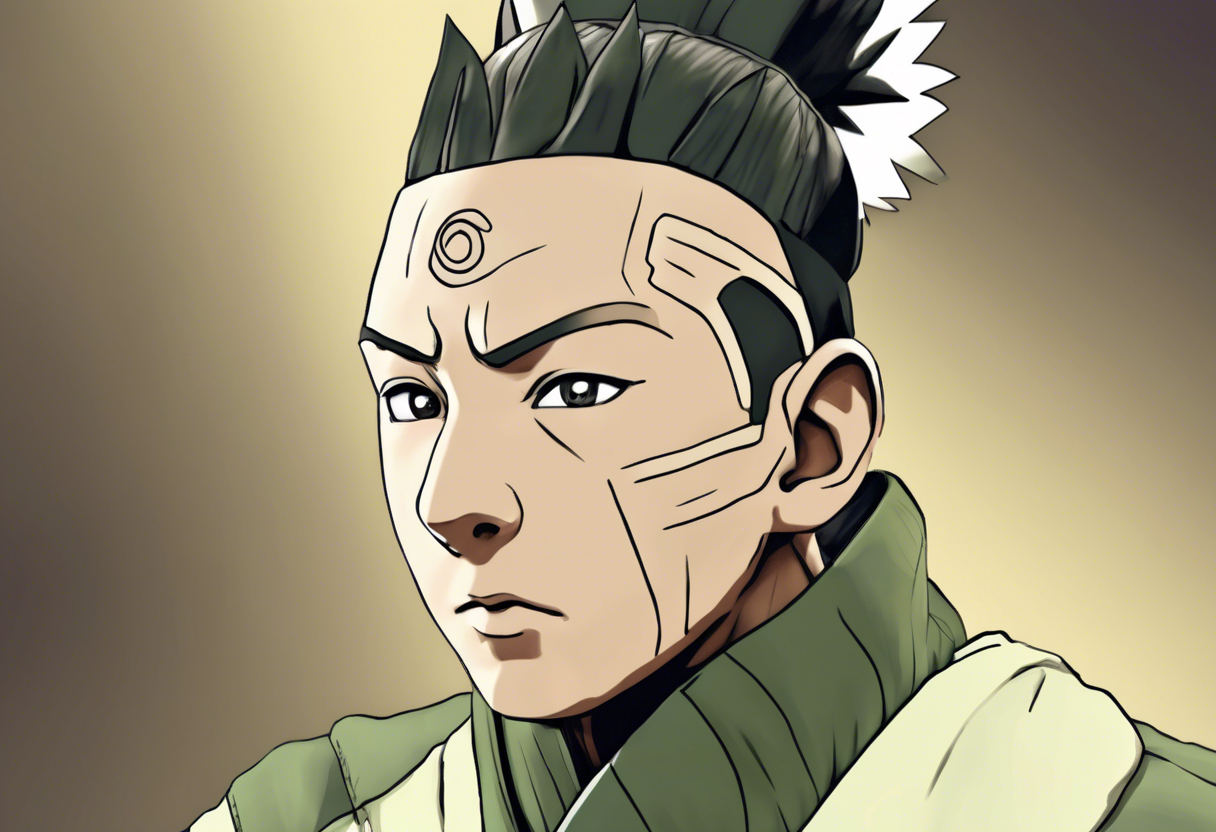Contents
Shikamaru Nara: The Lazy Genius of Naruto
Introduction
Shikamaru Nara is a pivotal character in the popular manga and anime series Naruto, created by Masashi Kishimoto. He is a member of Team 10, which includes Choji Akimichi, Ino Yamanaka, and their team leader Asuma Sarutobi, all affiliated with the Hidden Leaf Village. Shikamaru’s creation was influenced by Kishimoto’s desire to introduce a character who, despite his laziness, possesses exceptional intelligence and strategic thinking.
Shikamaru’s defining traits include his high IQ, estimated to be over 200 by his teacher Asuma Sarutobi [1][4], and his mastery of the Shadow Imitation Technique (影真似の術, Kagemane no Jutsu), a signature technique of the Nara clan. This technique allows him to merge his shadow with an opponent’s, immobilizing them and forcing them to mimic his movements.
Shikamaru’s significance in the narrative is multifaceted. He serves as a contrast to other characters, particularly Sasuke Uchiha, with his easygoing nature and reluctance to apply his intelligence in everyday life. Kishimoto has expressed a particular fondness for Shikamaru due to these traits, noting that he would likely be successful in life despite his laid-back attitude [1][4].
Role in the Story
Shikamaru’s storyline in Naruto is marked by significant events and personal growth. His first major appearance is during the Chunin Exams, where he demonstrates his intelligence and strategic thinking despite his apathy towards the exams. Although he defeats Temari from the Sunagakure, he forfeits the match due to low chakra, yet he is the only one among his peers to be promoted to the rank of Chunin due to his impressive performance [1][4].
As the series progresses, Shikamaru becomes increasingly involved in critical missions. He is appointed the leader of a team tasked with preventing Sasuke Uchiha’s defection to Otogakure, although they ultimately fail to stop Sasuke. In Part II of the series, Shikamaru plays a crucial role in the battle against the Akatsuki, particularly in avenging his mentor Asuma Sarutobi’s death by defeating Hidan. This event marks a significant turning point in Shikamaru’s character development, as he vows to protect Asuma’s family and continues to grow as a leader [1][4].
Shikamaru’s relationships with other characters are also pivotal. His bond with his teammates, Choji and Ino, is strong, and he forms close relationships with other characters like Temari, whom he eventually marries, and Kakashi Hatake, who aids him in his mission to avenge Asuma. His leadership skills are further highlighted when he serves as a proxy general under Gaara and later acts as the de facto Eighth Hokage during Naruto’s disappearance [1][2].
Character Analysis
Shikamaru’s personality is a complex blend of laziness, intelligence, and leadership qualities. He is often portrayed as a laid-back and unenthusiastic character who prefers to minimize his efforts in life. However, when the situation demands it, he can switch into a mode that embodies the ENTJ (Commander) personality type, characterized by bold leadership, strategic thinking, and the ability to unite and coordinate his team effectively [2].
Despite his lazy tendencies, Shikamaru is deeply kind and believes in the power of friendship and the Will of Fire, a core philosophy of the Hidden Leaf Village. His intelligence and strategic thinking make him a valuable asset to his team, and his ability to analyze situations and formulate perfect plans has been praised by both his peers and critics [1][2][5].
Shikamaru’s development throughout the series is marked by his gradual acceptance of his duties and his growth into a confident leader. Initially, he acts against his own interests to fulfill his ninja duties, but over time, he learns to embrace his role and allow his ENTJ side to shine through. This transformation is particularly evident in his battles and his role in leading his team against formidable opponents [2][4].
Themes and Symbolism
Shikamaru Nara embodies several key themes in the Naruto series. One of the most significant themes is the balance between duty and personal desire. Shikamaru’s reluctance to apply his intelligence and his preference for a laid-back life are constantly at odds with his responsibilities as a ninja. This conflict reflects the broader theme of finding one’s purpose and accepting one’s duties, even when they are not aligned with personal desires [1][4].
Another theme Shikamaru represents is the power of friendship and camaraderie. His strong bonds with his teammates and his willingness to go to great lengths to protect them illustrate the importance of relationships in overcoming challenges. This theme is central to the Naruto series and is often highlighted through Shikamaru’s interactions with other characters [1][2].
Shikamaru also symbolizes the concept of hidden potential. Despite his outward appearance of laziness, he possesses extraordinary intelligence and strategic abilities. This contrast serves as a reminder that individuals often have more to offer than what is immediately apparent, and that potential can be unlocked when the situation demands it [1][5].
Cultural Impact
Shikamaru Nara has had a significant cultural impact, both within the Naruto fan base and beyond. He is highly popular among fans, consistently ranking high in popularity polls and inspiring a wide range of merchandise, including action figures, key chains, and patches [1][4].
His character has also influenced popular culture, particularly in the context of the broader Naruto phenomenon. The Naruto series, including its characters like Shikamaru, has become a cultural icon, influencing gastronomy (e.g., Ichiraku Ramen), memes (e.g., Naruto Runs), and even inspiring real-world events and fan gatherings [3].
Shikamaru’s portrayal in adaptations and spin-offs, such as video games and feature films, has further solidified his place in anime culture. His unique blend of laziness and genius has made him a memorable and beloved character, contributing to the enduring appeal of the Naruto franchise [1][4].
Critical Reception
Shikamaru Nara has received widespread acclaim from critics and audiences alike. His transformation from a lazy Genin to a confident leader has been celebrated by many, with Anime News Network praising his emergence in the Naruto storyline [1][4].
Critics have noted his unique personality, which combines intelligence, strategic thinking, and a laid-back attitude. His ability to devise perfect plans and lead his team effectively has been highlighted as one of his strongest attributes. The ENTJ personality type analysis has also provided a deeper understanding of his character, showcasing his potential as a bold and visionary leader [2].
However, some critics have pointed out the initial inconsistency between his lazy nature and his exceptional abilities, but this contrast has also been seen as a strength, adding depth to his character. Overall, Shikamaru’s reception has been overwhelmingly positive, with many considering him one of the most compelling and relatable characters in the series [1][2][5].
Legacy
Shikamaru Nara’s legacy in the Naruto series and beyond is profound. He has inspired other character archetypes in anime and manga, particularly those that blend intelligence with unconventional personalities. His enduring appeal lies in his relatability and the depth of his character development.
In contemporary discussions, Shikamaru remains a relevant figure, symbolizing the importance of finding one’s purpose and embracing one’s duties. His character continues to influence new generations of fans and creators, ensuring his place as one of the most memorable characters in anime history.

